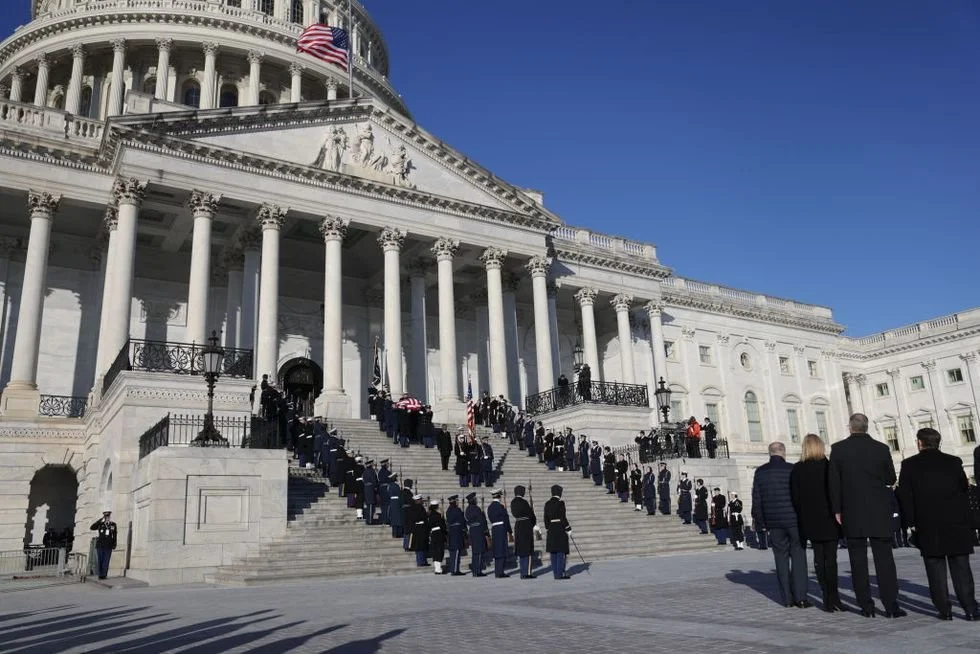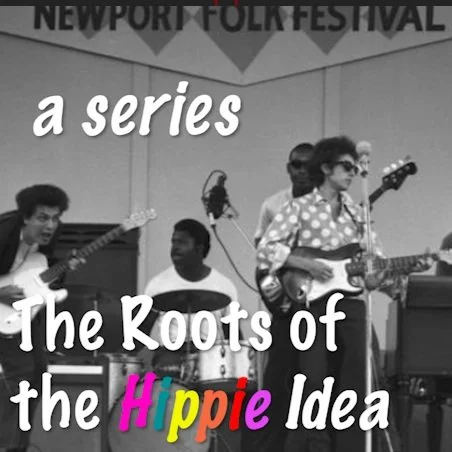Reverse the Curse: Designing the Integrated Schools We Should Have Built
During our lifetimes, the public schools originally designed by white adults for white children have chronically failed Black students and students of color. It is one of the great failures of our generation.
Whether we call it an achievement gap or an opportunity gap, the fact remains that the results of schooling in America, especially in the American south, are now and have been consistently and significantly different for white and children of color. The recent decades of piecemeal attention to inequalities in schools have not succeeded in overcoming the persistent effects of racial segregation in public education.
A proper response now would be to re-examine the whole enterprise and re-imagine public education in the most inclusive ways possible. . . .
Shit happens . . .
This year that just passed, here’s a pretty shitty litany:
I almost died from a heart attack.
A friend of almost 40 years did die, partly from a heart attack, partly from internal bleeding when he fell and wasn’t discovered for days.
A very energetic friend—same age, of course—fainted in the street and had to have surgery for a previously undiscovered genetic heart condition.
A friend who was minding her own business got run over by a car in a supermarket parking lot and was knocked unconscious for several days.
A friend who swims and dances was in the cardiac intensive care unit and on a ventilator with the sudden onset of takotsubo cardiomyopathy, or broken heart syndrome.
There’s more, alas, but you get the idea. . . .
end of an era
The haunting and lovely strains of the Navy hymn, Eternal Father, Strong to Save, brought me to tears as I listened to the Armed Forces chorus and orchestra perform the beautiful song at Jimmy Carter‘s funeral. It evoked so many feelings, both about my own father and about our country—and the end of an era.
Truthfully, the era ended a while ago, but the finality hit me during the service.
I was 24 when President Carter was elected, and I had moved back to Alexandria, Va., after two years of teaching in the Virginia mountains. His inauguration is the only one I ever attended.
It was a glorious cool winter day and he and Rosalynn got out of the limousine and walked most of the route down Pennsylvania Avenue. Everyone cheered. …
The power of music (particularly now)
I never stop wondering what it is that makes us love music. I’m sure brain scientists have delved way into the subject, but here are the thoughts of a layperson, who happens also to be a musician.
There’s something about sounds—a.k.a. music—that to us (“us” depending on one’s culture in this case) are more compelling than mere speech. They captivate us and grab our hearts. Trying to figure out what it is about those sounds that captivates us is an intriguing rabbit hole in which to dive.
And those sounds could not have a more important role than they do in these troubling times. I'm a skeptic when it comes to the value of talk therapy, but music therapy? Unquestionably beneficial. And if you want to inspire yourself to struggle against the forces creating the trouble, little helps more than protest music. . . .
“Can I Please Talk to a Human?”
My role in discussions of new technologies has been as an “anti-declinist”—a coinage of my own, a coinage that mostly has not caught on.
Still, give me an example of any now-beloved or at least now-accepted technology, and I can cite right-thinking people at the time who were convinced it was evidence of ongoing decline, a step on the road to ruin. That includes, for instance, the printing press, which, Leo Tolstoy concluded near the end of War and Peace, was “Ignorance’s weapon.” So Tolstoy—apparently dismayed that a lot of crap was being printed—dismissed the printing press as “ignorance’s weapon” precisely at the moment when he was about to use it to give us War and Peace.
Knowing this and having written about a couple of dozen other new technologies that were similarly disparaged, dismissed and even feared when they were young, I should be the last person to criticize a very new technology, a technology obviously still experiencing growing pains, a technology that will obviously significantly improve.
But that’s what I’m going to do. . . .
Memories of a Basketball Game
At a certain age, memories become malleable. They begin to fit the stories we’ve told again and again, the telling of the memory becomes more real than the memory itself.
I’ve been thinking about the tricks of memory recently because I’ve been thinking about the most exciting sports event I’ve ever attended. I’ve been to the World Series several times, to the Stanley Cup Finals, a Super Bowl, the NBA Playoffs, and tennis’ U.S. Open. I’ve seen, in person, Willie Mays and Michael Jordan, Pele and Jim Brown and Bjorn Borg. As a one-time professional sportswriter, it was my job to be at thrilling sports events.
But in my memory, nothing—not before, not since—compares to the excitement of a boys’ basketball game I was at more than half a century ago.
The details are both hazy and remarkably distinct. . . .
When Will It Stop?
The mass-violence incident in my hometown of New Orleans on Jan. 1 took me back to November 1977 and another mass-violence incident in the city. On the morning of Nov. 7, a man named Carlos Poree shot his estranged wife and her father and went on to shoot eight more people in the French Quarter and Central Business District.
My father was the ninth person shot.
I came home from school that afternoon to learn that my father had been shot in the neck while walking to a restaurant for lunch. While I had been gabbing with my girlfriends in my high school cafeteria, my father was lying on a sidewalk, receiving last rites from a priest who happened to be in the area—the first of three last rites he’d receive over the next 48 hours. . . .
Bob Dylan A-Changin’
We were born into this—this notion that to be an artist was perpetually to be rethinking what an artist should be, a notion very much at the heart of James Mangold’s Bob Dylan biopic, A Complete Unknown.
I don’t think Mozart saw himself as involved in continually reinventing music. Rembrandt was struggling to portray what he saw, not struggling to reconceptualize what painting might be.
But the rules of painting had changed dramatically in Paris in the second half of the 19th century as Claude Monet, Edgar Degas and Camille Pissarro began painting en plein air; painting fast, with a palette of bright, sunlit colors; and painting ordinary people—not Napoleon on his horse. A theory—a wonderfully invigorating theory—had been placed before Napoleon’s horse. . . .
What Exactly Is “Our Generation”?
My main concern is the assumption in much of the politics that appears in Writing About Our Generation is the notion that its authors, editors and readers, occupy a generation. What exactly is it? And does it possess purely chronological, or also class, economic, educational, geographic, gender, political and other parameters? If so, as I'd suggest, use of pure generational boundaries may be of little help and much obfuscation.
In contrast, I'd suggest that there runs through most American, upper-middle-class, liberal minds—those of us who haven't yet given up on Enlightenment perspectives and hopes—several overlapping beliefs (perspectives?) about material progress, its links to social values, especially distributional ones, and democratic means of ensuring and securing through democracy, better things and ways for society, especially its poorest members.
Failure to deliver on this promise (hope? wishful thinking?), while preserving our own comforts and privileges, produces cognitive dissonance at best, evasive hypocrisy at worst, and the drift of voters away from the likes of us and toward such dreadful tribalist hucksters as Trump and Netanyahu, two examples of a growing trend. . . .
The warmth of a cold winter
As 2024 disappeared and the winter winds were blowing into the Green Mountain State, many of my friends packed their bags with swimsuits, shorts, t-shirts, and SPF 15, to spend the winter under a perpetually shining sun.
But not me.
I am staying, like I always do, right here in the north country. Do I envy those who find respite from the northeastern weather that can cut through you like a cold knife through hot pecan pie? Not one bit!
I honor their decision, but for me there is nothing like a winter in Vermont. Winter up north is a time for reflection, transformation, introspection and quiet to process one’s life. …
Never Trump … Still
It may be premature, but it’s possible that conservative New York Times columnist Bret Stephens may be starting to choke on his recent semi-conciliatory words about Donald Trump.
After all, how can a sentient being think anything but the worst after the recent shitstorm of venality and incompetence over the debt ceiling—set against the astounding array of fools and scoundrels with which the once-and-future president has surrounded himself for his next time in the sandbox.
In his own column recently, Stephens had this to say about Donald Trump:
“Who, and what, is Trump? He’s a man and the symbol of a movement. The man is crass but charismatic, ignorant but intuitive, dishonest but authentic. The movement is patriotic—and angry …”
Stephens went on to say that Never-Trumpers (he included himself) simply missed the surging waves of discontent among all voters this year, and joined liberals and moderates (like me) in a cavalcade of cluelessness:
“What ordinary people really cared about this year were the high cost of living and the chaos at the border. Why did Trump—so often deprecated by his critics as a fortunate fool—understand this so well while we fecklessly carried on about the soul of the nation?”
First, let me say that it’s not a bad thing to worry about the nation’s soul, just that maybe this season was not the time to make such a thing of it (the price of eggs, you know.) But I would add to Stephens’ sobriquet “fortunate fool” the Italian word “furbo.” …
2024, we hardly knew ye
It was a year to remember, and I wish I could. I know I put it somewhere. And I’m pretty sure I had it when I walked into the room, if I could just remember which room I walked into.
Then again, it’s possible I left it in the car.
While I may not remember all of 2024 precisely, I do recall My Monthly Top 12 Accomplishments for the year.
Here they are:
January: I changed all my computer passwords. To provide additional security and prevent potential identity theft, I also changed my identity and became seven inches taller and the Nobel Peace Prize winner. …
Welcoming a new year
Do you still go out for New Year’s Eve?
We don’t, not anymore. For a number of reasons.
Let’s be honest: as we have gotten older, it gets harder and harder to stay up late. By midnight, when the ball comes down, we’re generally long gone. Sometimes making it to the end of the 10 o'clock news feels like a real accomplishment.
Most of the people we know who are about the same age feel the same—they have left New Year’s Eve celebrations to those young enough to watch Saturday Night Live live, not several days later, at a more reasonable time, with YouTube videos. They’ve traded in the late-night festivities for the more humane New Year’s Day brunches and open houses.
Plus, even if we weren’t needing to go to bed much earlier, we clearly no longer can party until 3 or 4 a.m., like some of us did back in the day. In fact, it is now harder to party at all, particularly when you can’t hear what the other partygoers are saying because the music is too damn loud and too many other people are talking at the same time and you can’t remember for the life of you the name of the partygoer you are trying to talk with. …
Jimmy Carter: an appreciation
He was a hard man to like, yet an easy man to respect.
He did not suffer fools, confident as he was in his own keen intelligence, not to mention comfortable with his disdain for the political give-and-take that used to fuel political Washington.
The shorthand summary of his one-term presidency, from 1977-1981, was that it was an overall failure because of his stiff-necked refusal to schmooze and haggle with Congress. This glib (and wrong) assessment gains traction because folks could in the same breath heap praise on Jimmy Carter’s post-White House life: public policy wonk (and often scold), humanitarian whose efforts worldwide seemed to equal those of Muhammad Ali, and of course tireless worker for Habitat for Humanity.
[Think about it: what former president from our lifetime can you imagine not just clearing brush on his ranch a la Ronald Reagan, but actually putting on—and using—a tool belt day after day to build homes for the poor?]
The sumbitch may have been prickly, but, dammit, he was a mensch. Not to mention a Nobel laureate. …
Some of the best “Writing About our generation”
It’s almost the end of the year, which means Writing About Our Generation is almost a year old. Which means, it’s time to look back, take stock and see what we’ve done.
But as we enjoy a small break from the every-day publishing grind and gear up for year two of Writing About Our Generation, here are some of our favorite posts from this year, stuff that made us think or laugh or re-evaluate. If you’re new to the site, or are as forgetful as we often are, consider this a sort of “best of” list, or a primer on Writing About Our Generation, ’24.
It was difficult to choose. We prize and are grateful for everything we’ve put up. But here are some of our greatest hits.
What’s Wonderful about this Life
It’s A Wonderful Life premiered in December 1946 and nearly eight decades of Christmases later, we keep watching George Bailey peer over a bridge railing, his head filled with a dark certainty that the world would be better if he had never been born. Clarence, an angel, disabuses Bailey of his dark notions by revealing a dystopian counter-factual: a world without him.
Bailey’s impact is apparent. He has built half the homes in Bedford Falls, helping to thwart the heartless Henry Potter.
For many of us who aren’t George Bailey or Jonas Salk, the impact is harder to measure. Robert Putnam was recently interviewed by the New York Times about his life’s work, including the 1995 book, Bowling Alone: America's Declining Social Capital. He told The Times that over the past quarter century, the problem he outlined in 1995—the weakening of communities and political engagement—has gotten worse. . . .
A WAL-MART CHRISTMAS EVE
I finally made my choice between the several 20-items-or-less lines, calculating that the young, slender checker would be quicker than the older, weary looking woman running the register to her left. And, as usual, within seconds, Young-and-Slender stopped dead to call for a price check.
It was Christmas Eve day at Wal-Mart. The parallel checkout lines were close together, and several people had already filled in behind me. Turning my cart around would be awkward.
So, summoning some gratefully arrived seasonal good cheer and patience, I began scanning various magazine covers featuring apparent celebrities I’d never heard of and Taylor Swift, of whom I just had—and impressively so—in a segment on Sixty Minutes; quite a remarkable young woman.
As expected, nobody responded to Young-and-Slender’s price check request, and while our line remained December frozen, customers to our right and left crept forward at mission food line pace, but moving nonetheless.
As I, in my way, contemplated the nature of things—holiday traditions and sentiment, celebrity culture, mass shootings, games of fiscal-cliff chicken, Wal-Mart seediness (as well as my own), and the ineffable Mystery from which this and the ten thousand things emanate … well, not exactly emanate … but…oh well, it is ineffable, after all, a male voice behind me said:
“Stay over there on that side. I’m over here.” …
Have yourself a techie little christmas
Twas the night before Christmas, when
all through the town
TikTok was quiet even Bluesky was down.
Stockings were hung by the plasma display
In hopes Elon Musk wouldn’t
take them away.
The children were nestled, all
snug and secure,
While Big Data strip-mined
their free FICO score. …
Heather Cox Richardson on: The Trump and Musk Show
We are with one of our children on the island of St. Barths, where I should be thinking about Emerson’s wonderful line about warm weather: "Man in summer is man intensated.”
I should be noting the casualness with which women are excluded from such aperçus. I should be trying to figure out why spellcheck doesn’t recognize “insensated.” And I should be deciding if I ought to aim for “insensated,” during this Caribbean idyll or whether merely “laid back” will do.
Instead, I’m noting that most of the tourists here are younger and richer than I. And I’m thinking (our fate for the next four years?) about Trump/Musk.
The latter—the thinking not the election—is in large part Heather Cox Richardson’s fault.
I know many of you subscribe to her letters and Substack. (If not, that can be rectified (for free) here. We try to keep excerpts from articles that have appeared elsewhere to a minimum. And she is not even a member of our age cohort.
But she can make our situation—our ridiculous and frightening post-election situation—so damn clear. . . .
Health Care Doesn’t have to be this way
There’s been a lot of conversation recently, in the wake of the murder of the United Healthcare CEO, about the failures of the American healthcare system, and particularly the inadequacies of American health insurance.
For some, the alleged murderer became a kind of folk hero, a Robin Hood pushed to the limit, an avenging angel fighting health insurance’s myriad injustices. For many, it simply uncorked a deep well of pent-up consumer frustration. For me, it provided an occasion not only to think about how much better health care in America could be and should be, but how different it was when we lived in France. . . .





















